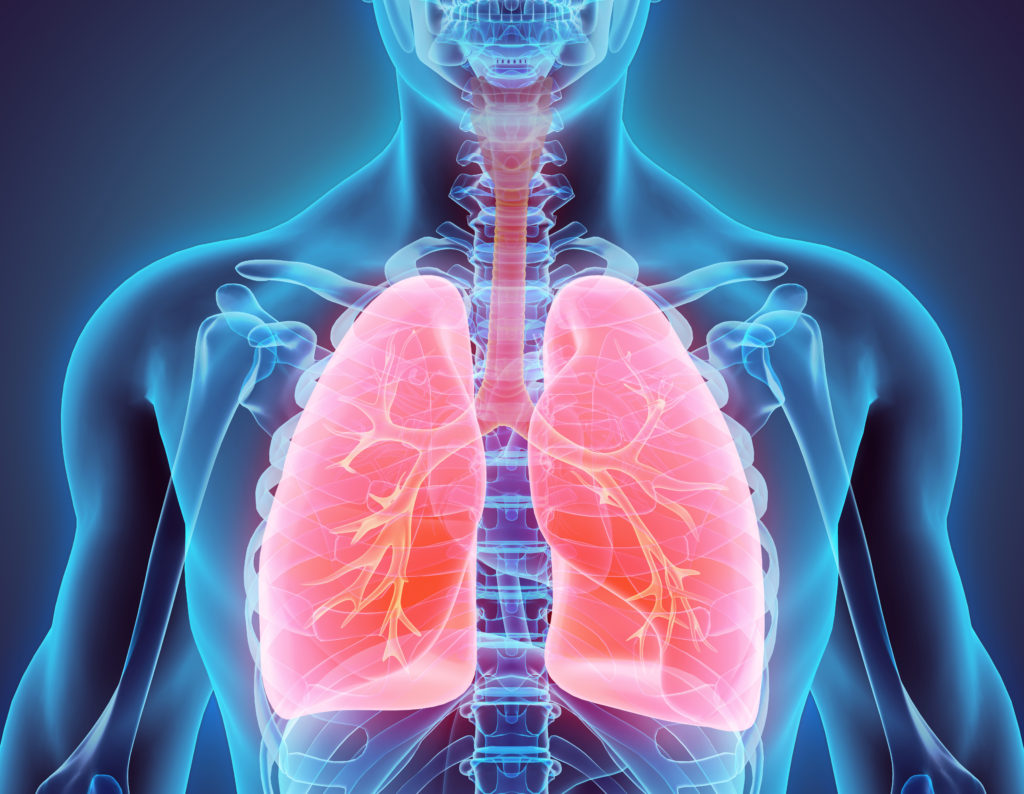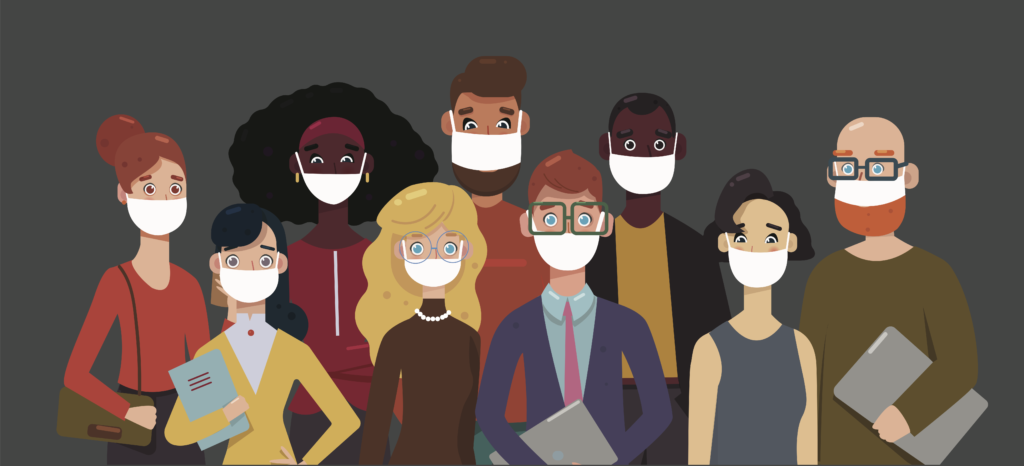 COVID-19: What you need to know. Coronaviruses are a type of virus; some of which cause disease. A newly identified type of this virus has caused the outbreak of a respiratory illness named COVID-19. Have you or a loved one been impacted by COVID-19? Read further for additional information about this disease and how to move forward from here.
COVID-19: What you need to know. Coronaviruses are a type of virus; some of which cause disease. A newly identified type of this virus has caused the outbreak of a respiratory illness named COVID-19. Have you or a loved one been impacted by COVID-19? Read further for additional information about this disease and how to move forward from here.
COVID-19: Background
As you probably know, the 2019 Novel Coronavirus (COVID-19) is a recent respiratory disease that emerged in late 2019 in the Wuhan, Hubei province. The disease is caused by the SARS-CoV-2 virus which stems from a family of virus’s that mainly affects the respiratory tract in
humans.
At the time of this article – May 2020, there are over 4 million confirmed cases worldwide and nearly 300,000 confirmed deaths associated with the virus. Among those, the United States is accountable for almost 1.5 million cases and nearly 100,000 deaths.
What to Look Out For
People with COVID-19 have a wide range of reported signs and symptoms. These have ranged from being asymptomatic (no symptoms) to severe which has caused death in thousands of people. According to the CDC, symptoms may appear two to fourteen days after exposure to the virus. Symptoms can include:
- Shortness of breath
- Cough
- Fever
- Chills
Sounds familiar right?
The symptoms of COVID-19 closely resemble those of influenza, the common cold, or seasonal allergies. This speaks to the importance of testing and diagnosis since there are no unique symptoms directly linked to COVID-19.

How it Affects Your Lungs
Your lungs function as a facilitator of gas exchange in the body and to transport oxygen into the blood. When foreign substances enter the lungs, they can interfere with the gas exchange process and cause severe problems. COVID-19 enters the lung cells in susceptible individuals that express a specific receptor type. For more in-depth reading on this process, please read this article. The virus also gains entry easier with those who have respiratory issues such as asthma or chronic obstructive pulmonary disease (COPD) or in those who have weakened immune systems.
Cytokine Storm
There is a phenomenon called the Cytokine Storm which can be described as a severe lung infection where inflammation spreads to the rest of the body. This causes undesirable affects such as low blood pressure, variable body temperatures, low white blood cell count, and low blood platelet count. Cytokines are a group of small proteins in the body that work to regulate the immune system and fend off viruses as well as many other functions. When the body encounters a virus, it releases these cytokines to defend against the infection. In severe cases this release of cytokines can become overwhelming to the body and cause this “storm.” This has a high mortality rate and typically results in death of the patient. In cases where a patient survives the Cytokine Storm, it is suggested that a paralyzing affect on the immune system can still cause death.
Acute Respiratory Distress Syndrome
ARDS is a life-threatening complication that can rise from COVID-19 infections. Patients present to doctors with severe symptoms of shortness of breath, cough, and fever. This is due to persistent inflammation and fluid build-up which can lead to collapsed lung(s) and scarring. When one or both lungs collapse, they are prevented from filling with enough air which leads to decreased oxygen in the blood and body. The death rate for ARDS has shown to be between 30-40% of patients who contract the disease.

Are You in Danger?
There are many factors and variables that determine the severity of this virus and its effect on the body. If the virus is exposed to the mouth, nose, or throat it makes sense that it would only cause local cold-like symptoms. This is comparable to any local infection of bacteria that only effects some parts of the body. However, if the virus is able to travel to the lungs, it could develop into ARDS or other systemic (full body) conditions.
People who are already taking certain medications might impact overall disease severity as well. It is speculated that people on certain blood pressure medications and rheumatoid arthritis medications may have less severity to COVID-19 if they were to contract it. It is also speculated that females have less severe symptoms and outcomes compared to males due to the role of estrogen.
As mentioned, there are many factors that can affect the outcomes of COVID-19 and many are to be discovered as the disease progresses. The main ways to keep safe and to limit the amount of exposure is to self-quarantine and to wear a mask when you do leave your residence. The CDC has been issuing guidance on safety precautions and is a great resource for anyone who may have been exposed to an infected individual. Only time will tell how long this virus will linger around and until then follow your local guidance and stay safe.
Have you or a loved one been impacted by COVID-19?
Contact us below to learn about your options.
Men’s Health Concerns
 The spectrum of men’s health is a varied area of genre-related issues that are directly connected to testosterone secretion, sexual fitness, and patterns of behavioral changes due to hormonal imbalance. Although there are various drugs and supplements available for the maintenance of male health and fitness, adopting simple lifestyle changes along with the intake of a nutritious diet can help combat many diseases and physiological disorders.
The spectrum of men’s health is a varied area of genre-related issues that are directly connected to testosterone secretion, sexual fitness, and patterns of behavioral changes due to hormonal imbalance. Although there are various drugs and supplements available for the maintenance of male health and fitness, adopting simple lifestyle changes along with the intake of a nutritious diet can help combat many diseases and physiological disorders.
Men’s Health: Facts
The various ailments and diseases that males suffer from are mostly due to neglect of not consulting a doctor or lack of maintaining good eating and lifestyle habits. Men are more prone to risks like cancer, depression, heart diseases, and faster aging. Also, statistically, men are more unlikely to pay a visit to the doctor for regular check-ups or at the onset of an anomaly, putting themselves to the risk of various health conditions. However, most of these diseases and health discrepancies are treatable, and in some cases, do not even manifest if a healthy and fit lifestyle is maintained.
Aging in Men
Hormonal changes in men affect their physique and behavior throughout their lives. Genetically speaking, men are prone to suffer from muscle dystrophy, blood clotting, and Fragile –X syndrome. Men are more physically active than women and tend to suppress their emotions. All these collectively give rise to mental illness or unintentional fatal risks like suicide or homicide. Also, men are twice as likely to suffer from alcohol-related health issues or accidents under DUI.

Health Risks in Men
Although diversity prevails, men go through smoke and alcohol abuse or fatal accidents. Hormonal changes after 40s result in the loss of muscle mass which is again the cause for weight gain. Risks and anomalies like diabetes, heart diseases, and high blood pressure are common in men. Later on, in their lives at around 60s, they go through hair loss and enlarged prostates. With age, many physical issues begin to emerge and as a result, maintaining good food habits along with regular checkups is necessary.
Regular Checkups
It is important to go for regular screenings and checkups to combat health-related problems before they begin to show bigger symptoms. Statistically, men are more likely to suffer from diabetic, lung, and heart-related problems as compared to women. Some recommendations for basic screenings in men include:
- Colon Cancer
- Depression
- Diabetes
- High Blood Pressure
- HIV
- Lung Cancer
Common Diseases in Men
Overall, men’s health is more susceptible to conditions like high blood pressure that is again directly related to heart failure, increased risks of venous or arterial thrombosis, stroke, and kidney failure and aneurysms. Cancer is another major health issue affecting men of all ages. Some of the most common types in men include lung, prostate, and testicular cancer. Depression in men causes many to contemplate suicide, undergo stress and mental instabilities, and behavioral changes. However, most of these issues if diagnosed early can be treated and by maintaining a fit and healthy lifestyle, the chances of getting affected by any of these also reduce to a substantial amount.
Sexual Health in Men
The spectrum of sexual health in men is a highly significant area and their wellbeing is often directly associated with how good or bad their sexual conditions are. Testosterone being the primary sex hormone in men drives their libido and acts in promoting pleasurable activities. Sexual health in men is often affected by psychological, physical, and interpersonal factors. Sex can be hailed as one of the biggest driving forces in both men and women’s bodies but it has its downsides too in the form of sexually transmitted diseases like STDs. Drugs and supplements that promise to eradicate various problems and induce better sexual health sometimes pose substantial risks in men. Overall, there are various areas in the spectrum of male sexual health than needs to be monitored.
Sex Enhancement Drugs
Long-term use of male sexual enhancement drugs like Viagra or Cialis can cause various side effects. It is better to consult a doctor before administering any drug just by seeing promising advertisements.
Erectile Dysfunction
Caused due to various reasons like age, stress, low testosterone levels, erectile dysfunction is one of the commonest sexual health discrepancies in men.
Fertility
Production of healthy sperm is often hindered due to long-term consumption of drugs as side effects, drinking, smoking, etc.
Contraceptives
Contraceptives should be used not just to block pregnancy but also sometimes, to avoid sexually transmitted diseases as well. In men, contraception can be practiced through two resources; surgical vasectomy and the use of condoms. Condoms are an irreplaceable contraceptive method that stops STDs from spreading as well as hinder the flow of sperm into the vagina causing pregnancy. Vasectomies, on the other hand, are sterilization with less than 1% failure rate. Surgically driven, the procedure aims at blocking the pathway between urethra and testes and hence stops the flow of sperm from the testes. They are also reversible about 95% of times.
Health Tips
To live a longer life without risks, the following health tips will help in leading a life without these complexities.
- Staying physically active
- Maintaining a healthy and nutritious diet
- Maintaining an ideal body weight
- Keeping alcohol consumption in control
- Giving up smoking habits
- Managing stress and depression
- Driving safe
- Avoiding STD contamination
- Practicing mentally-stimulating activities
- Regular check-ups and screenings
Drug Risks
Everyday drugs can often lead to health issues in men that sometimes pose substantial risks. The following are some of the most common drugs and their symptoms in men.
- IVC Filter- Migration, breakage
- Avastin- Heart attack, high blood pressure, gastrointestinal perforation, hemorrhage
- Crestor and Statins- Low cholesterol, strokes, heart attacks, Type 2 diabetes, kidney failure
- Beta Blockers and Diuretics- Erectile dysfunction
- Jalyn- High-grade prostate cancer
- Norvasc- Gynecomastia, acute blood pressure
- Prinivil- Decreased libido, liver damage
- Risperdal- Gynecomastia

Overall Verdict
The life and health of a man can be an ideal example of a fit and healthy body if minor changes are adopted in their everyday practices. From eating and sleeping well to exercising in moderation, avoiding risky drugs and paying regular visits to the doctor will ensure long-lasting wellbeing.
Living with Diabetes

Diabetes, a metabolic disease causes your blood glucose or blood sugar level higher. The food that you usually eat supplies glucose to your body. Insulin is the hormone which helps the glucose to get into your body cells and in turn, it produces the energy level. Diabetes is caused when your body is no longer able to make or supply insulin properly.
According to the research of the Centers for Disease Control and Prevention, approx 29.1 million Americans are suffering from diabetes. However, the untreated high blood sugar level can affect your kidneys, nerves and other organs and lead it towards damage.
Different types of diabetes:
Type 1 diabetes:
This autoimmune disease destroys the pancreas cells where the hormone insulin is made. The cause of this attack is still unknown to the researchers. And it is reported that almost 10% of people are suffering from this Type 1 diabetes. This type of diabetes is also known as “juvenile” as it is often diagnosed in children and young adults.
It destroys the healthy tissues of your body and gives birth to certain illness that encourages some infections like measles, flu, and mumps. This life-long disease comes up with a No Cure signal.
Doctors suggest daily insulin injections to treat this Type 1 diabetes.
Type 2 diabetes:
On the other hand, Type 2 diabetes is caused when the person’s body is not anymore producing and using insulin efficiently. The body resists the sugar build-ups and leads you towards this second type of diabetes. The report says that an estimated 26 million Americans adults are suffering from this Type 2. According to the doctors, approx 3.7% of adults between 20-40 age are suffering from this disease.
It used to be known as adult-onset diabetes or non-insulin dependent diabetes. Nevertheless, it causes major complications to your health. Particularly, it affects the smallest blood vessels that nourish nerves, kidneys and eyes. Also, Type 2 diabetes increases the risk of stroke and heart disease.
Type 2 diabetes gives the symptoms of a progressive disease that may get worse as the time progresses. Doctors prescribe higher doses of medications along with insulin injection as the remedy of this disease.
What are the Symptoms?

Though Type 1 and Type 2 diabetes are said to have similar symptoms, people with Type 1 experience these symptoms sooner than the Type 2 diabetes patients. The symptoms of Type 2 sufferers are milder than the Type 1 people and that’s why the Type 2 diabetes often goes unnoticed.
Let’s check the common symptoms of diabetes:
- Frequent Urination
- Feeling very thirsty
- Feeling very hungry – even if you have consumed enough food
- Blurry Vision
- Bruises or cuts takes excessive time to heal
- Extreme fatigue
- Tingling, pain or numbness in feet or hands (type 2)
- Losing maximum weight – even if you are eating more (type 1)
- Dry itchy skin
Gender Differences
Symptoms in men:
Men with diabetes are often seen to have a decreased interest in sex drive. The erectile dysfunction is also noticed and they start developing poor muscle strength as well.
Symptoms in women:
Women face urinary tract infections, dry and itchy skin, as well as yeast infection, start developing.
Low blood sugar with Type 1 diabetes:
The symptoms of hypoglycaemia take place in your body if you are suffering from Type 1 diabetes. A sudden drop in the blood sugar level is noticed if the patient is consuming more insulin than required. An unhealthy lifestyle can cause low blood sugar levels in patients with Type 1 diabetes.
The symptoms of hypoglycaemia are noticed when the blood sugar level goes below 70 mg/dL. Symptoms like – nervousness, headaches, irritability, hunger, rapid heartbeat (palpitations), sweating, weakness, shaking, and nausea are found in the patient’s body.
Risk associated with Type 1 diabetes:
Doctors are not sure about the cause of Type 1 diabetes but they suspect it to be a hereditary component. The tendency of developing autoimmune disorder may transfer from one family member to another. In the case of children born to fathers with Type 1 diabetes may develop this symptom.
Chromosome 6 – the threadlike structure is said to be the central part of a cell. In this place, the genetic information is usually held in the form of genes. The genetic connection takes place in chromosome 6 for the Type 1 diabetes. It takes the form of an HLA i.e. human leukocyte antigen. This gene complex, therefore, produces certain proteins which are considered to be responsible for the regulation of one’s immune system. However, having one or more HLA doesn’t always develop type 1 diabetes.
Risk associated with Type 2 diabetes:

Some people think that gaining excessive weight increases the risk of developing Type 2 diabetes. But some other factors cause Type 2 diabetes and moreover, not all people with this type of diabetes are suffering from overweight issues.
A checklist offered by The National Institute of Diabetes and Digestive and Kidney Diseases for type 2 diabetes patients includes:
- Patients age 45 years or older
- Obese or overweight
- Patient’s family background (if anyone has diabetes)
- Patient’s origin: African American, American Indian, Hispanic/Latino, Asian American, Alaska Native or Pacific Islander
- Higher than normal blood glucose
- Blood pressure level ( higher/normal)
- If the patient has a high cholesterol level
- Are not very physically active
- Suffering from depression
- Any problems with heart, brain or legs

How to prevent Type 1 diabetes?
A person suffering from Type 1 diabetes cannot easily prevent the disease as several risk factors associated with it will remain unchanged. However, one must prevent the pancreas to get injured. The pancreas injuries are often caused by car accidents and if such things ever happen, then take immediate medical assistance from the doctors. On the other hand, avoiding alcoholic drinks and fatty foods can help one preventing acute pancreatitis.
How to prevent Type 2 diabetes?
Choosing perfect diet food will help a patient to lower the risk of Type 2 diabetes. Also, a person should increase the level of physical activity say at least 30mins of activity regularly. The changes, of course, won’t come overnight. So, set your goals and start slowly to prevent these acute diabetic issues.
Women’s Health
 Health problems in men and women are similar to a long extent, but women’s health includes various gender-specific issues that deserve special consideration. The term women’s health refers to a broad spectrum of physical and mental health problems that are an exclusive concern for women. They go through dramatic physical and mental changes due to the changes in their reproductive systems. Proper diet, maintaining a healthy lifestyle and stress management are some of the key things that can keep women’s health healthy and going.
Health problems in men and women are similar to a long extent, but women’s health includes various gender-specific issues that deserve special consideration. The term women’s health refers to a broad spectrum of physical and mental health problems that are an exclusive concern for women. They go through dramatic physical and mental changes due to the changes in their reproductive systems. Proper diet, maintaining a healthy lifestyle and stress management are some of the key things that can keep women’s health healthy and going.
Women are twice as likely as men to get migraine headaches, rheumatoid arthritis, irritable bowel syndrome, etc. Their bodies go through major changes all through their lives, leading to different health concerns in different age groups. Women are more prone to mental health like depression, anxiety and eating disorders during their physiological transitions. During adulthood, a wide range of sexual issues like infertility, STD and birth control gains impetus. Post-menopause, women suffer from disorders due to hormonal changes, however, these diseases, if diagnosed and treated early are curable and women can lead a healthy life just by maintaining simple health tips.
Some facts about women health
- Diseases like Cancer, osteoporosis, cardiovascular disease and depression are some major health risks associated with women’s health.
- Stress and depression are more common in women in comparison to men
- Women’s sexual health is affected by reproductive issues, birth control measures, and STDs.
- According to reports women in the United States and also other countries are more affected by osteoarthritis than men.
- Women suffer from UTIs more than men.

The Aging Process of Women
Women’s life is immensely affected by their reproductive cycle in different stages. Physical changes in women occur due to the changes in their estrogen levels during adolescence, maturity and old age.
After conceiving, girls instantaneously start showing physiological changes. Even girls develop breasts and are born with the milk-duct system while still in the womb. Right from childhood, girls develop concerns regarding their weight. Approximately at the age of eight or nine, girls’ ovaries begin to produce estrogen that leads to breast development and also pubic and underarm hair growth start at this age.
Post-Menopause Life of Women
There are a lot of changes in women experiences after menopause. Usually, menopause in women begins in the late 40s and early 50s and officially regarded when a woman doesn’t have her periods for one whole year. During menopause, the progesterone and estrogen levels fluctuate. With the decrease in estrogen level, many tissues in the body including the breast lose elasticity and hydration. The risk of depression and physical fatigue is very high after menopause usually because circumstance makes women lonely. There also occur some physical problems especially related to dermatology and weight gain/loss. Maintaining a healthy lifestyle, surrounding loved ones and leading a stress-free life is the best way to deal with the post-menopause phase.
Common diseases in Women
Though men and women suffer from the same conditions but the diseases affect them differently. To begin with, high blood pressures cause different health issues in women. While women have a lower risk of high blood pressure but men and women have a higher risk of blood pressure after the age of 65. Also women, who usually don’t have high blood pressure before menopause, develop this condition after it.
Women are at a higher risk of metabolic syndrome that causes high blood pressure, abnormal lipid levels, high glucose levels, increased waist size, etc. throughout their lives. As already mentioned that women are at higher risk of osteoporosis, cardiovascular diseases, and cancer, amongst them, the type of cancer that is exclusive in women-only is breast cancer. If detected at an early stage, with proper treatment, breast cancer in women has a higher rate of survival.
Osteoporosis is a common health concern that comes with aging and even before. Older adult women are mostly affected by this health condition for which they need to follow some specific routine, some medication and certain changes in the lifestyle.
Also, more women than men suffer from anxiety and depression. This condition can cause great harm to the overall health of women, affect their ability to work, sleep, and feel stress-free. Depression also leads to the suicidal tendency in women.

Sexual Health and Fertility
Sexual health in women refers to the wellbeing of women’s sexual activity and their participation. Apart from physical factors, sexual health is affected by social, interpersonal and psychological factors. Sexual activity is not only possible due to the sexual organs, hormones, the brain, and body. Other psychological factors like-emotions, expectations, and experiences affect sexual health too.
Sexually Transmitted Diseases (STDs), Endometriosis, Illicit Birth Control Means, Hormonal Methods, Intrauterine devices (IUDs), Natural Family Planning (NFP), Barrier methods are some of the concerns related to the sexual health of women. While these concerns have been considered and practiced by women, however, it is very necessary for every woman and their partner/family to sensibly deal with any issue regarding these aspects. There are various modern-day diagnosis and treatment that can easily cure such health concerns.
Some Health Tips For Women’s health and wellbeing
The following tips are informative and helpful for women of different age group-
Physical Activity and fitness-
Some easy activities like walking, gardening, stretching, dance, and music can keep women healthy both mentally and physically. Dedicating at least half an hour to any of these activities is necessary.
A Healthy Diet:
While women are considered to look after the health of the family, they should never estimate their health. A balanced diet, a properly scheduled meal plan, intake of protein, minerals, fiber, and carbohydrate is necessary to be at best. Avoid taking too much sugar and salt, food with high-cholesterol to maintain blood pressure level and cardiovascular diseases.
Take Proper Medications:
While depending too much on prescription drugs is not a good thing for both men and women, however, women should never ignore any symptom that doesn’t make them g=feel good. Visit doctor routine checkups.
Maintain Healthy Weight:
Maintaining a healthy weight is the key to keep all the health concerns away. Balance your calorie consumption with proper calorie-burning activities.
Limit Smoking and drinking:
Smoking is another key reason for different health concerns in women. Also, alcohol intake must be reduced.
Stay Hydrated:
Drinking plenty of water and fluids is necessary for detoxifying your body.
Veterans’ Health Concerns
 When it comes to healthy aging, study after study prove that enjoying active and energetic lifestyles are important to lead a healthier and fulfilled life. Most of the countries in the world are witnessing an elder population explosion and veterans already account for a considerable percentage. Signs that come with aging are unavoidable but again there are some sensible and practical ways to acknowledge the changes that come with age. Along with physical and mental concerns longer lives financial concerns, especially in this era where there are only a few traditional pensions. Also, in comparison to any other age group, seniors take more prescription drugs, visit doctors frequently and become more dependent on family members or caregivers.
When it comes to healthy aging, study after study prove that enjoying active and energetic lifestyles are important to lead a healthier and fulfilled life. Most of the countries in the world are witnessing an elder population explosion and veterans already account for a considerable percentage. Signs that come with aging are unavoidable but again there are some sensible and practical ways to acknowledge the changes that come with age. Along with physical and mental concerns longer lives financial concerns, especially in this era where there are only a few traditional pensions. Also, in comparison to any other age group, seniors take more prescription drugs, visit doctors frequently and become more dependent on family members or caregivers.
Ageism is Hurting Veterans
Ageism can be defined as prejudice against senior people and, like any other prejudice, creates rigorous issues in society. According to the World Health Organization, ageism is rampant in countries with great economic status, like the USA. While the citizens of this country pay great importance to living standards, sadly aging is seen as a devastating process that poses a threat to their prized possessions. While excess drug intake affects veterans’ cognitive and physical functions, they also become the victim of everyday environment and tend to become displeased by healthcare providers who subsequently may not cater to their closest needs.
Erroneous Diagnosis
Diagnostic errors are relatively common in older people. Their reactions to pharmaceuticals and symptoms of diseases can be misinterpreted by doctors and other healthcare providers. Also, many senior people may be more susceptible to the wrong diagnosis that not only endangers their health but also lead to opportunity costs for the healthcare systems.
Strokes Due to Drugs
Many real-life stories showcase the reflective consequences of ageism in healthcare. A report by the Alliance of Ageing Research said about a woman named as ‘Mrs. G’ whose life took a U-turn due to misdiagnosis and wrong treatment. While she was quite independent at the age of 82, worked three days a week, she changed after she feels in her home and hit her head. Following the accident, she was diagnosed with Parkinson’s disease and started taking medication as prescribed by the doctors.
Eventually, Mrs. G’s condition improved but soon deteriorated. She was forced to use a wheelchair and even if she tried to stand, she would stiffen. Medications were further increased and gradually she lost lucidity and was sent to a rehabilitation facility. Later, a nurse recommended her daughter to see a geriatric specialist in a different hospital who concluded that Mrs. G didn’t have Parkinson’s and stopped her drug intake. Tests showed that wrong drug intake caused her a series of strokes that irretrievably damaged her brain. Even though Mrs. G stopped taking those drugs, she was unexpected to recover completely.
Care by loved Ones

According to reports non-paid caregivers like family and friends provide most assistance for senior people. They help a veteran in their daily work like eating, shopping, bathing, cleaning homes, etc. While the need of care is reaching height, the numbers of caregivers are decreasing day by day, mostly because low fertility, increased divorces, a higher rate of childlessness and increased rate of staying single, etc. therefore, veterans will have fewer members in their family to care for them. Studies show that if the needs of the caregivers are not addressed, their lives will be at the state of increased risk in every aspect right from health to quality of life.
Elder Abuse and Risk
According to the National Center on Elder abuse, one out of every 10 senior citizens in the U.S has experienced abuse of some form. Lack of social support is one of the key reasons for this. As a result abused older people become more dependent on caregivers, who eventually suffer mentally, physically and financially.
Negligence and abandonment are also regarded as forms of elder abuse other than sexual, physical and emotional abuse. Veterans diagnosed with Parkinson’s are more likely to experience abuse due to their lack of ability to communicate, reductions in memory and impaired judgment.

The Importance of Nutrition for seniors
While eating right one of the key requirements for older adults, aging affects a lot of things that lead to improper nutrition. The medication causes changes in taste and color, other gum diseases and dental problems prevent from eating what one likes. Older people who have lost their ability to smell, taste or identify colors are likely to receive less protein, vitamins, minerals, and carbohydrates due to lack of eating enough.
Nutritionists recommend making eating an interesting activity for the seniors just like the kids. Adding colors, spices that are not harmful and also texture can help. Green leafy vegetables and those with bright colors like bell peppers, carrots, tomatoes, and sweet potatoes can make food enjoyable. If allowed, a little amount of cheese, butter, nuts, and olive oil can enhance the taste buds of the veterans.

More Illness, Many Doctors
Older adults are likely to have more than one health issues at the same times which mean they need to see more than one doctor for treating them. As a result, they take medicines prescribed by different doctors and this increases the risk of drug toxicity. It is always advisable not to take medicines for every health conditions, especially those can be cured by bringing some changes in lifestyle and food habits.
Vaccines
Last but not least, vaccines play a major role in senior people over the age of 50 years. According to numerous surveys, about 45,000 older adults die each year due to disease complications that could be otherwise prevented by vaccines. In general older people tend to avoid getting vaccinated because they think it is not necessary or even due to lack of adequate knowledge. Also, they might think that vaccines can have side effects.
However, vaccines don’t have major side effects and taking vaccines at the right time can prevent them from illnesses that can lead to hospitalization, disability and even death in the long-run. Some common vaccines for seniors and are Flu, chickenpox (varicella), if not received in childhood, Tdap or Td (Tetanus, whooping cough, diphtheria)
MMR (Mumps. Measles, Rubella), if not received as a child and born in 1957 or afterward.
Wellness and Aging
Living a healthy life is what makes a person feel better. One of the biggest challenges that everyone faces is adding more years to their life. According to the research associates, 12 out of 100 people in the U.S are aged 65 or older. These elder members of your house often fail to cope with the changes that come to their way of living. Well, the three most important things that can only make you feel happier with aging and are – exercise, diet, and sleep. As the phrase says “prevention is better than cure”, one must start following the tips from early aging that can gift them a healthier and happier lifestyle in the future.
Once you start maintaining a proper lifestyle, it will help you to skip the chronic diseases and bless you with a long-living livelihood. Exercise and diet are no doubt the counter stones of living a better life for senior people. If you start participating in exercise regularly, then you can find a noticeable impact on well-being. Some health issues for both men and women like – arthritis, high blood pressure, osteoporosis, dementia, high cholesterol, and depression can be avoided. The research estimates, 1 in 4 Americans suffers from the above diseases. And these chronic conditions of your body may affect your independence and daily active lifestyle as well.
Hence, the well-being of a senior person must not be over-emphasized. You can follow the steps below to win over fatal diseases.
What are the basics of staying healthy?
The following tips can make your body stronger and engage it with a good immune system that can help you fight against the uncertain disease.
Diet and nutrition:
Choosing proper diet food is important! You can notice some significant changes in your body when you are in your 60’s, 70’s or 80’s. Heart and lung disease, diabetes mellitus, stroke, cancer, and memory deficit etc are said to be the impact of the food that you consume.
A balanced diet that is comprised of whole grains, fruits, fibre and vegetables can help your body to receive a proportionate amount of carbohydrate, vitamin, protein, and mineral elements. The portion of food you intake is also important as it allows your body to maintain the metabolic needs.
A healthy diet arms your body with energy sufficiency that you need while ageing. And if you find absolutely nothing abnormal in your health, then you are likely following the right guidance in terms of consuming food.
Drinking Lots of Liquids
People towards aging start losing the sense of thirst which develops urinary infections in their body. To help your body staying well-hydrated start the habit of drinking more water. On the hot days, you should intake water both before and after you are done with your exercise. Liquids that have a lower amount of sodium, fat and sugar must be consumed. Some of the good choices are – low-fat soups, skim milk, water, fruit juices (say cranberry, orange and apple). One must avoid the food that comes up with empty calories such as – alcohol, sodas, doughnuts, and cookies etc.
What to eat?
To install the anti-inflammatory immune system, you must intake a rainbow of brightly coloured food. It will let your body having the nutrients that it requires. Fruits and veggies like – tomato, watermelon, grapefruit, spinach, sweet potato, peach, broccoli, and cabbage and many others should be consumed.

What are there in healthy protein meals?
Some of the healthy meals include –
- Fruits and vegetables (red, orange, green, purple, and blue)
- Low-fat dairy (low-fat cheese and skim milk)
- Lean protein (chicken, eggs, lean meat, seafood, pork, and legumes)
- Whole grains (wild rice, oatmeal, and whole heat toast)
Moreover, foods that are high in Vitamin D must be incorporated in your diet chart.
How much to eat?
People who don’t care about the proportion may face health issues. Everything in your diet chart must be proportionate. People who are in their 50’s or older may check the following food habit each day.
- Vegetables—2 to 3½ cups
- Protein foods—5 to 7 ounces
- Oils—5 to 8 teaspoons
- Fruits—1½ to 2½ cups
- Grains—5 to 10 ounces
- Dairy foods—3 cups of fat-free or low-fat milk
- Sodium (salt) and solid fats and added sugars (SoFAS) — less amount
Regular Exercise
Everyone must involve their body with a regular physical activity so that they can keep their nerves energetic and healthy. For seniors, it will help them skipping hypertension, osteoporosis, heart disease, and diabetes etc.
A minimum of 30 minutes of exercise increases the heart rate by about 75%. If you want to avoid hard exercising techniques, then take a 30 minutes’ walk to the garden every day. Set a lower target to achieve your walking distance. Also, you can do some machine exercise to bring flexibility in your body (avoid weight lifting without professional’s help).
A daily exercise may be beneficial in the following ways –
- Maintaining proper weight as per the height and age
- Good cholesterol level
- Delivering oxygen and nutrients to tissues
- Increasing physical energy
- Excellent sleep and mood-enhancing
- Reducing injuries and falls
Sleep and aging:

Older adults who are aged 50-65 must have 7-9 hours of sleep every night. Those who are 65+ should adopt a sleeping habit of 7-8 hours a day. However, waking up a maximum number of times throughout the night may result in sleep deprivation. But remember, poor sleep may affect your mental as well as physical well-being. It can also give rise to some diseases like – obesity, hypertension, mood disorder, and shortened life expectancy, etc.
If you are facing difficulty to have a good sleep at night, then you can follow the tips mentioned below.
- Avoid consuming more caffeine throughout the day. Also, you should not intake alcohol at an alarming rate.
- Take a light snack or supper before going to bed at night.
- Drinking too much before bed may encourage you to go to pee at night. So, avoid drinking too much liquid before going to bed.
- Also, avoid napping too late in the day.
The Health and Wellbeing of Children
 Parents are haunted by a series of questions as their children reach different stages of their growth and development. When should my child see a doctor? Does bullying affect my preteen? What medicines are potentially harmful to children? These questions and many others often bother parents. While some children may face diabetes, obesity or hearing loss, others may require spectacles and even an EpiPen injection for allergies. Understanding children’ health and wellbeing are possible by learning how their bodies grow, what symptoms must be taken seriously and how to identify by risk factors.
Parents are haunted by a series of questions as their children reach different stages of their growth and development. When should my child see a doctor? Does bullying affect my preteen? What medicines are potentially harmful to children? These questions and many others often bother parents. While some children may face diabetes, obesity or hearing loss, others may require spectacles and even an EpiPen injection for allergies. Understanding children’ health and wellbeing are possible by learning how their bodies grow, what symptoms must be taken seriously and how to identify by risk factors.
Newborns and Toddlers (Birth to 2 years)
Understanding a children’s health is quite difficult during the first two years after a child is born. Your newborn will eventually mature into a toddler, reaching new dimensions along the way. These years’ parents have packed schedules visiting doctors, medical screenings, vaccines and more. Although parenting a child is more than an overwhelming experience, it is very important to stay alert and well-informed.
Newborn Screening
In general, a newborn baby undergoes a screening to check some rare but serious health risks. This is done to take precautions if a baby is diagnosed with any rare or serious disease and can be treated in time. Mostly screening programs include blood tests, hearing tests and also some states do screening for checking the function of the heart.
Routine Visits:
According to medical experts, parents must bring their newborns and babies regularly to assure they are doing well. You and your bay will likely be seeing a doctor minimum nine times in the first two years for routine checkups.
Vaccine Schedule:
Most doctors recommend one or more vaccinations for your newborn during routine checkups. Again this depends on your child’s development. Usually, vaccinations are scheduled at birth, after 2 months, 4 months, 6 months, 12 months, 15 to 18 months and 24 months. Some of the vaccines recommended for infants and toddlers are-
- Hepatitis A & B
- Diphtheria, tetanus, and pertussis (whooping cough)
- Haemophilus influenzae type b
- Pneumococcal disease
- Rotavirus
- Polio
- Varicella (chickenpox)
- Measles, mumps, and rubella
- Seasonal flu vaccine

Breastfeeding and Solid Foods:
While breastfeeding is always the priority, again it has a lot to do with the mother’s health and the baby’s ability. The alternative option is formula feed. If your baby is breastfeeding, he or she should be fed every two to three hours i.e. eight to twelve hours a day. Babies who are bottle feeding will usually eat every three to four hours during the first few weeks.
Hearing and Vision:
After your baby turns one week old, he or she should be able to respond to your voice, in whatever gesture possible. Infants with hearing loss normally fail to recognize any familiar voice. When it comes to examining the eyesight, a baby’s first eye exam happens right in the delivery room. Normally, after two weeks of life, a baby must focus on an object that is 8 to 14 inches away. By the time a baby turns 3 months, he or she can be easily distracted something it finds interesting.
Baby’s First Dentist Visit:
A Baby will need to see a pediatric dentist before or just after he or she turns one year old. Dentists in most of the countries suggest bringing their babies after six months for their first tooth poking. Most babies begin cutting teeth after they turn 6 months. These months can be bothering, may cause pain and sensitivity. Dentists have good solutions to ease the teething plain of these toddlers.

Children (3 to 8 years)
For parents, it seems their babies have grown in a blink of an eye. However, after your infant has grown into children the importance of routine check-ups continue. Usually, a primary care doctor may suggest 4-years old to receive a few vaccines including tetanus, diphtheria, acellular pertussis (DTaP), measles, chickenpox, mumps, polio, etc.
Allergies:
Children between the age group of 3 to 8 years mostly develop allergies that can affect the eyes, nose, skin, throat, and lungs. There are seasonal allergies while others can happen anytime if your child comes in contact that causes a reaction. Certain conditions can be caused by allergies. They are-
- Allergic Rhinitis (Hay Fever)
- Ear Infections
Childhood Bullying and Health Problems
According to many research studies, bullying behavior starts as early as age 3. In this respect both bullied children and those who bully others may get affected by serious health issues that can last for long. Many types of research prove that bullied children have trouble with a lot of things in their adulthood; especially they have trouble with finances. They are not optimistic about their future and also don’t have a good social circle. Other studies prove that bullied children become aggressive, hostile and often develop smoking habits and drug.
Children Obesity
According to the FDA, childhood obesity is one of the most common health problems that are always prone to risk. According to studies, lifestyle disorders, lack of physical activities, unhealthy food habits are major reasons of childhood obesity. It is increasing with time and needs serious attention. Since date, no medications have been approving to cure childhood obesity and doctors strictly recommend bringing changes in the lifestyles.
Preteens (9 to 12 years)
Within these years, children come across rapid physical and mental development. Mostly, it is due to puberty that can start as early as at the age of eight or nine years. Girls begin to develop breast at the age of eight and begin menstruating two years after they begin developing breasts. In boys, genital growth can be witnessed at the age of nine years, they begin to grow body hair and also their voices begin to change.
Doctor’s Visit:
Older children must see their doctors for routine check-ups at the age of ten, eleven and twelve. Common vaccines are tetanus, the human papillomavirus (HPV), Tdap, HPV, etc.
Childhood Development Disorders:
When a child is at school, usually then children develop learning disorders. While it is evident from their response and body language, if diagnosed in time, things can be under control. Anxiety disorders like generalized anxiety disorder (GAD), Obsessive-Compulsive Disorder (OCD), Tourette syndrome are some other examples.
Children’s healthcare and development don’t end here. With every phase, there are new changes, both physical and psychological that has its impact on life. It is always suggested to stay in touch with a doctor and stay aware in case any abnormal signs or symptom is experienced.

